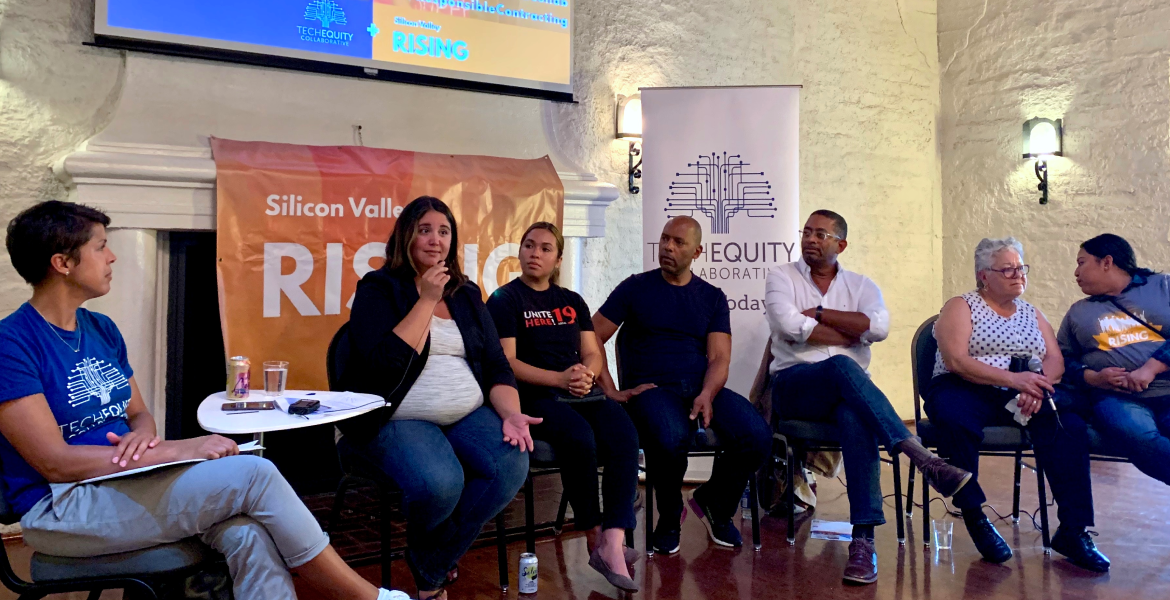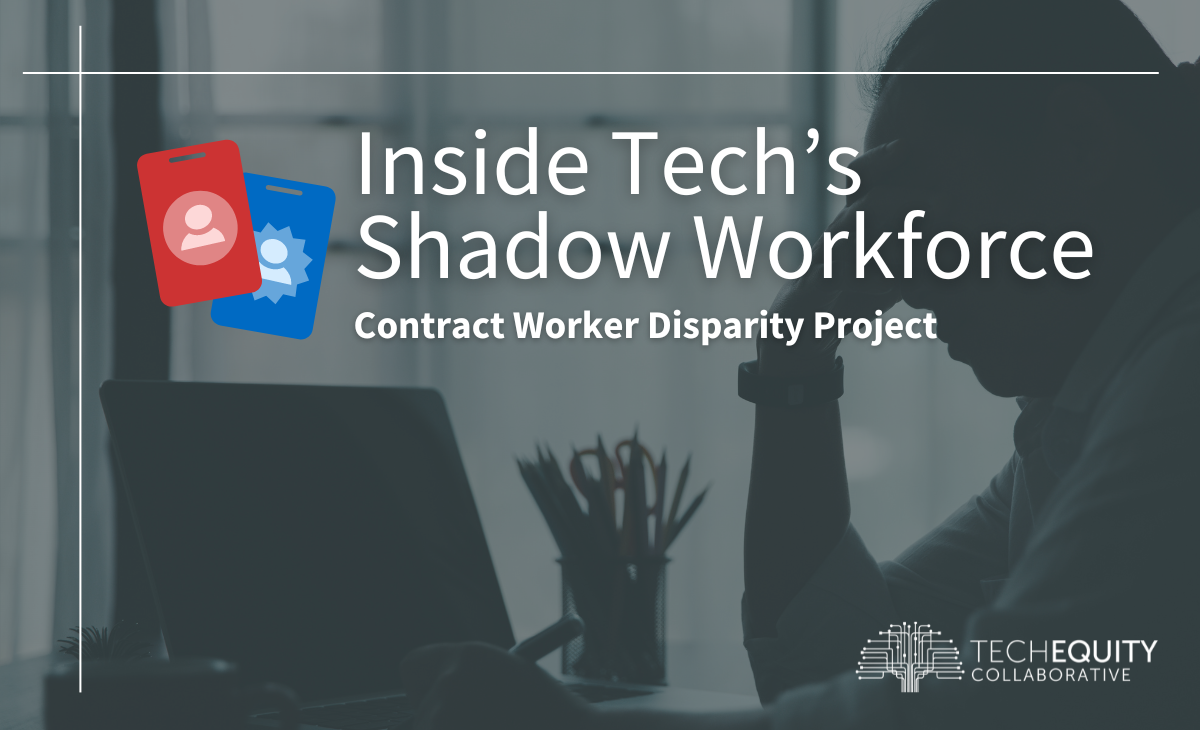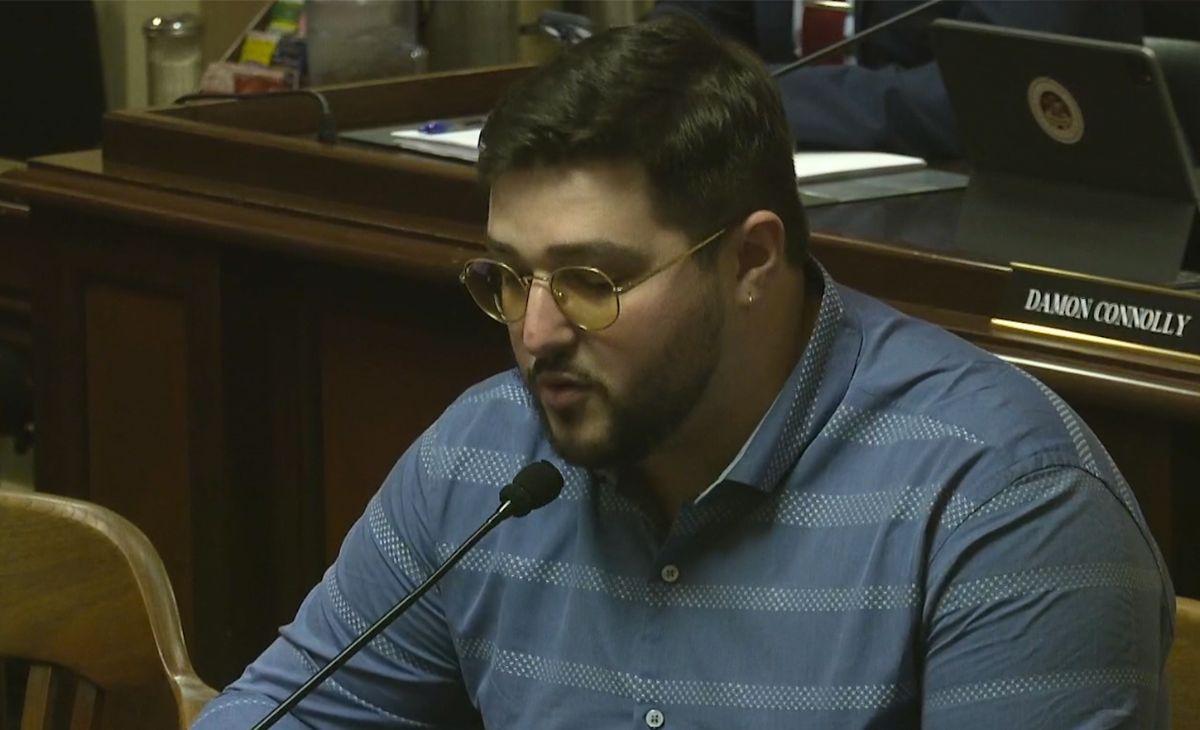Responsible Contracting Kickoff — Event Recap

Last Thursday, TechEquity Collaborative and Silicon Valley Rising announced a Responsible Contracting Project, which will provide a practical definition of a family-supporting job with safe and dignified working conditions for service workers on tech campuses.
The panel discussion was hosted by TechEquity’s Executive Director & Co-Founder Catherine Bracy. The panelists were Maria Noel Fernandez, Campaign Director of Silicon Valley Rising; Michael Matthews, CA Director of Public Policy at Facebook; Maria Trujillo, custodial worker and organizer with SEIU USWW; Jackie Espinoze, former food service worker and organizer at UNITE HERE; and Leslie Miley, tech worker and author of Inequality is Everywhere in Tech. And Tech is OK with it.
The panelists discussed the challenges subcontracted service workers on tech campuses face and how tech companies and full-time employees can use their influence to advocate for improvements to job quality and support service worker-led efforts to improve conditions.
By partnering to implement such standards, tech companies, tech workers, and labor and community organizations have an opportunity to reshape conditions for service workers not just in tech, but across all sectors.
Checkout our live tweet thread here:
Why Responsible Contracting?
Across the tech industry, tens of thousands of subcontracted workers — including janitors, cafeteria workers, security officers, and shuttle drivers — go to work every day at tech companies, providing support that allows the industry to thrive. Although they work side by side with directly-employed tech workers, they are not afforded the same job security, workplace safety, and respect on the job.
As the tech industry drives an economic boom in the Bay Area, inequality is increasing. One recent study found that, while tech workers here have the nation’s highest disposable income, the Bay Area is the worst region in the country to be a service worker, as skyrocketing rents outpace stubbornly low, stagnant wages. This divide often falls along racial lines, with blue-collar subcontracted service workers nearly six times more likely to be black or Latino than their directly-employed tech colleagues.
Even beyond low wages, far too many service workers lack access to a safe and secure workplace. In the face of issues including health violations, wage theft, sexual harassment, and discrimination, service workers too often find themselves with little recourse to address abuses. And despite their widely differing circumstances, the past year’s highly-publicized efforts of directly-employed tech workers and white-collar contractors to demand greater respect on the job suggest that all of these employees share common ground in the pursuit of a workplace where their voices are truly heard.
A Voice on the Job
The conversation began with Maria Noel Fernandez talking about diversity in tech. When thinking of the tech workforce, many believe that tech lacks diversity. However, Fernandez argued that in fact there is diversity within tech companies — but it all depends on where you look. Diversity is seen amongst service workers who are subcontracted by tech companies and do not share the same benefits as full time tech employees. The disparities in pay amongst Black and Latinx service workers severely contrast the high salaries tech employees are making.
Fernandez outlined the five pillars of responsible contracting needed for a good and livable job:
- A voice on the job
- Fair scheduling
- A safe and secure workplace
- Family-supporting pay and benefits
- Mobility & opportunity
She stressed that without workers having a voice in the workplace, they will never truly get the material conditions that they need.
We heard from service workers like Jacky Espinoza and Maria Trujillo, who bravely shared their lived experiences. Espinoza landed a job as a food worker on a large tech campus but had to choose between paying her bills or having health care. For years, she went without visiting a doctor or getting a check up.
Maria Trujillo, a custodial worker at another tech company, shared about the dangers of working on a night shift, and how she was sexually assaulted on the job. Trujillo explained the fear amongst her coworkers, and the ways in which a toxic and harmful work environment was and is normalized.
Both Espinoza and Trujillo’s experiences are unfortunately far too common amongst service workers. Espinoza eventually joined UNITE HERE and now advocates for other workers. Likewise, Trujillo stood up and began to educate her coworkers and host trainings so that others could begin to advocate against and prevent toxic work environments.
Both Espinoza and Trujillo underscored what Noel had described earlier, that having a voice on the job is crucial. Noel added in that one worker once told her when asked what they wanted the most: “I want to be seen”.
Pushing from the inside
Michael Matthews from Facebook shared his role in supporting the Teamster’s successful campaign of unionizing shuttle workers. Mathews emphasized “Across the board, we support worker’s right to unionize.” Although Facebook is not directly employing service workers, Mathews believes that they still have to hold contractors to a high standard.
Leslie Miley spoke about his long history in tech. He began his career first as a security guard before becoming an engineer. Miley saw and felt the differences in pay, benefits, and how he was perceived in his different roles. Miley urged the room to do the right thing and stressed the importance of a Responsible Contracting Standard. He stated “We need data to bring to the table and bring these issues forward”.
How can you help?
In order for a Responsible Contracting Standard to be successfully implemented across the industry, we need help collecting the right data. If you work for a tech company, please connect us to the people at your company who work with choosing vendors for subcontracted labor. In addition, if you are a service worker, you can help by telling us vital information we need to gather. Reach out to us at info@techequitycollaborative.org to help us embark on this vital initiative.





